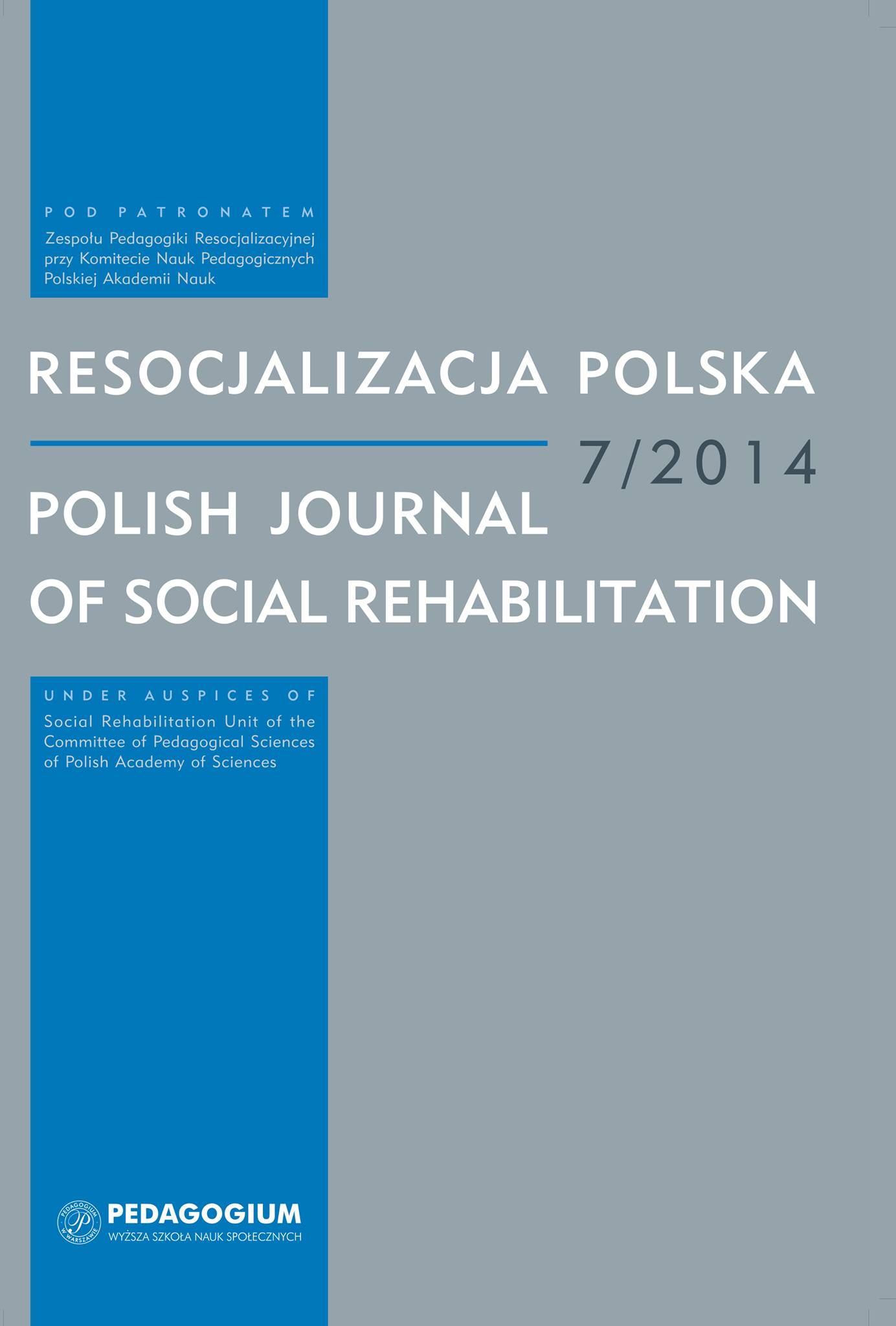The convict’s family as a participant in his penal resocialisation readaptation and social reintegration
The convict’s family as a participant in his penal resocialisation readaptation and social reintegration
Author(s): Henryk MachelSubject(s): Social Sciences, Sociology, Criminology, Victimology
Published by: Fundacja Pedagogium
Keywords: penitentiary social rehabilitation; social bond; relations of the convicted with their families
Summary/Abstract: One of the elements of penal social rehabilitation procedure is maintaining social ties with criminal’s families. The family bonds of criminal, maintained at an appropriate level, provide the basis for social re-processing, and for safeguarding criminals, freed conditionally or at the end of their sentences, from reoffending. Maintaining proper social ties between inmates and their families is essential for the proper process of penal reintegration and its end effect. The social bonds of prisoners can be classified according to the length of the sentence and depend on the type of sentence. If there is no family relationship (e.g. when someone is serving a sentence for an offense against their family) it is not possible to use it in the social rehabilitation process. Weak familial bonds can be reconstructed and treated as one of the process’s important objectives. A strong familial bond can and should be used to support and strengthen that process. The family bond is felt somewhat differently by women (the issue is concern for children, fear of abandonment by life partners, etc.) than by men. However, with regard to both categories of convicts, it plays an important role in the process of their rehabilitation and social re-adjustment, and helps prevent stigma. The recommended way of using good family relationships and rebuilding poor ties in penal work was applied with a positive effect for 20 months in a measured social rehabilitation experiment devised by the author, organised and implemented in a prison in Gdańsk-Przeróbka until the introduction of martial law in Poland in 1981. It was very positively evaluated by J. Rejman in his book entitled Change in the Polish penitentiary system – constraints and opportunities, published in 2013. The system operated throughout the entire prison facility and, as noted, was effective both in resocialisation and rehabilitation.
Journal: Resocjalizacja Polska
- Issue Year: 7/2014
- Issue No: 1
- Page Range: 203-214
- Page Count: 12
- Language: English

